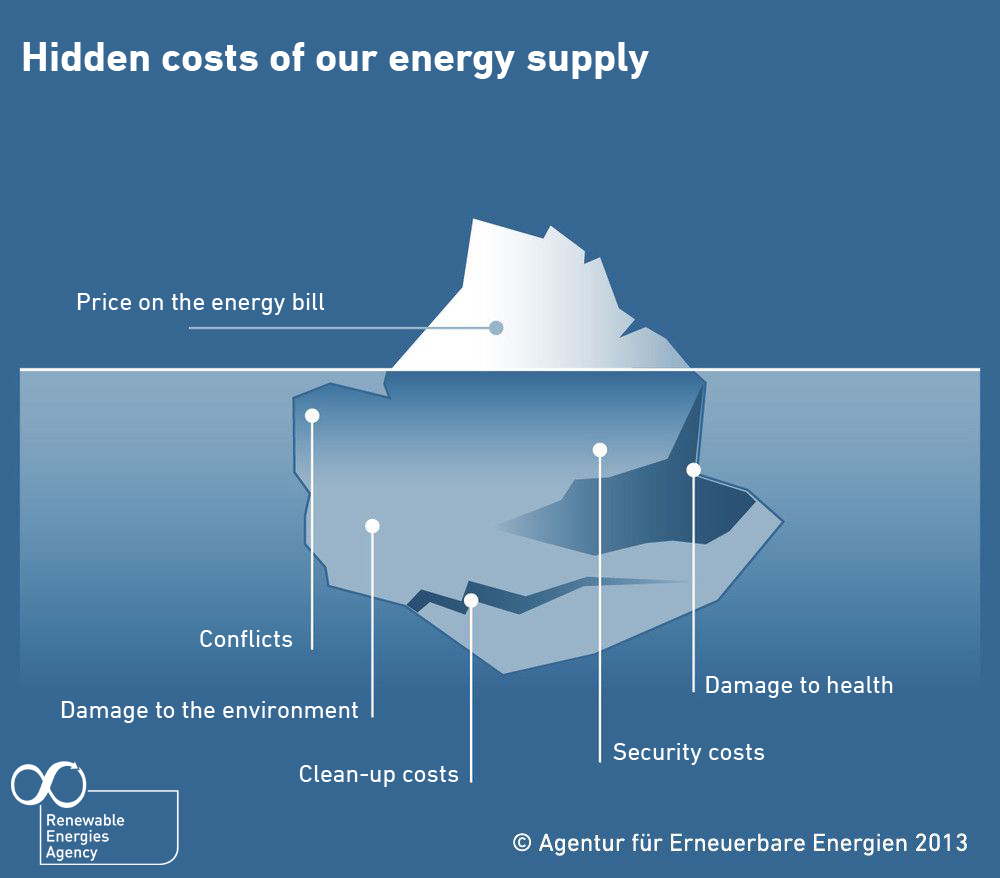5. Honest prices
In Germany, every kilowatt hour of electricity from renewable energ ies is remunerated in accordance with the Renewable Energy Sources Act (EEG). Some criticise the EEG’s fixed remuneration and feed-in tariffs.
ies is remunerated in accordance with the Renewable Energy Sources Act (EEG). Some criticise the EEG’s fixed remuneration and feed-in tariffs.
The current extra costs of renewable energies are low compared to the damage inflicted on the environment by exploiting finite resources such as oil, natural gas or coal. Moreover, like nuclear energy, the use of fossil fuel has been subsidised for decades:
Government support for
• hard coal (1970 – 2014): c. 327 bn euro
• lignite (1970 – 2014): c. 95 bn euro
• nuclear energy (1970 – 2014): c. 219 bn euro
According to a study by the Forum Ökologisch-Soziale Marktwirtschaft (FÖS), the hidden costs of fossil an nuclear power production accrued to some 40 billion euro in 2014 and 2015 respectively. This sum does not appear on electricity bills of consumers and companies, but still has to be met by the public - for instance via higher taxes. If a surcharge for conventional power was introduced, this would amount to more than 10 eurocents per kilowatthour, according to FÖS. This is almost two times the amout of the EEG surcharge which stands at 6.17 eurocents/kWh in 2015. In fact, conventional energies drive up costs.

Social Media